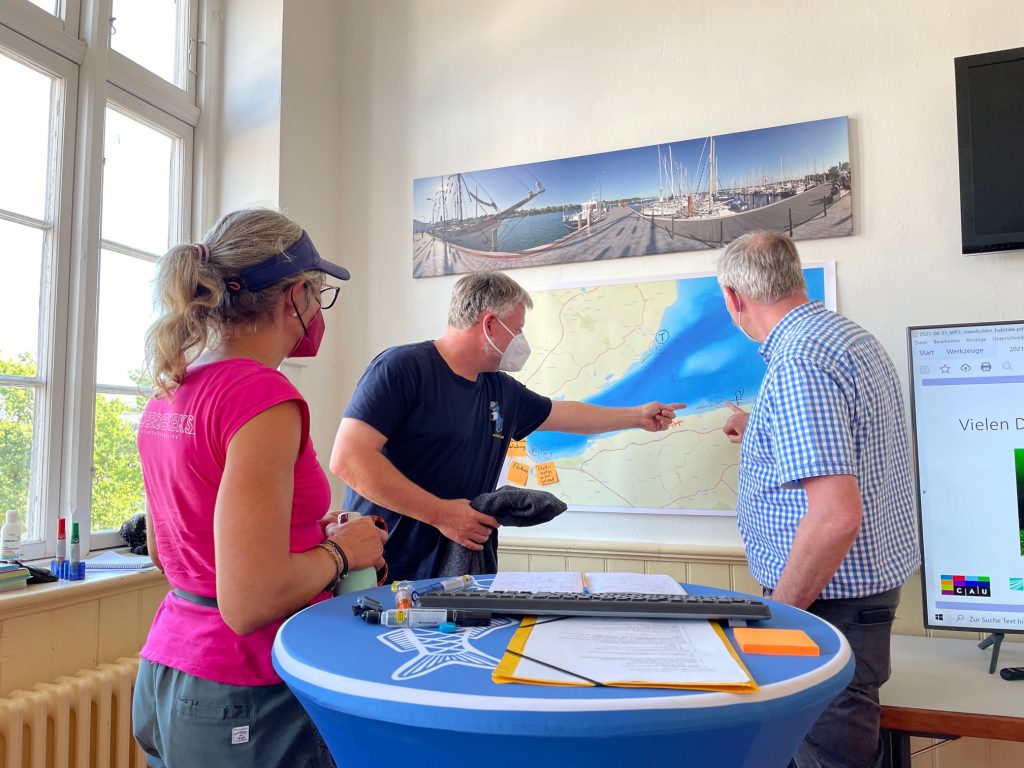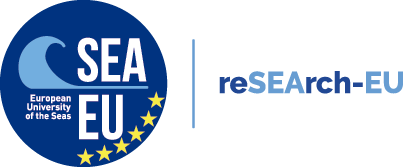Knowledge democratization

The aim of this work package under the responsibility of Kiel University (CAU) is to develop a research and innovation environment that consciously involves society. Based on a mapping helping to identify general experience of the participating universities with stakeholder engagement, several pilot projects will be developed and different tools for a successful stakeholder exchange will be explored. Finally, the best initiatives will be evaluated and a best practice guide will be developed.
Mapping and analysis of stakeholder engagement approaches and strategies within the Alliance
Three reflective workshops with scientists from all partner universities will help to clarify the difference in understanding of the notion of transdisciplinarity, to share personal experience in stakeholder interactions, and to identify potential overlaps between science communication and outreach. This self-reflection process will enable SEA-EU partners to identify cultural and regional differences and help to develop a best practice guide for transdisciplinarity. Case studies will be collected from all partner universities. A publication will summarize and illustrate the outcome of this analysis.

Enhancing transdisciplinary cooperation by pilot projects
Several pilot projects will test different formats of stakeholder engagement. Each format will be specifically adapted to local and regional settings.
“Kieler Marktplatz” (Market Place Event). (Responsibility: Kiel University) Marketplace is an event to enable exchange between scientists and business people, based on presentations and discussions about current topics of mutual interest for research, economy and politics.
Transformation Lab (responsibility Kiel University and UBO): This dialogue is based on the concept of Living Labs. Locations for these pilot activities are part of the European Network LTER (Long-Term Ecosystem Research in Europe): LTSER Zone Atelier Brest Iroise (France) and LTER-D Boknis Eck Time Series Station, Bight of Eckernförde (Baltic Sea, Germany). At each location, a one week workshop will be organized for 10 to 20 researchers of each university from various disciplines and stakeholders from partner regions.
Marine Science Shop (Responsibility UG): University of Gdansk will develop, test and run the Science Shop model. It brings together students, researchers and civil society with the aim to tackle actual issues at the local and regional levels. The Marine Science Shop will provide an inclusive and safe space for participatory dialogue. This activity will include a webinaron “Community Driven Participatory Research and Education”.
Citizen Science (responsibility UCA): This activity serves as a pilot study on citizen perception of virtual teaching and teleworking. The pilot will provide an analysis of experiences with Citizen Science and co-creation with civil society in this topic across the contest methodology.
Development of a good practice guide for transdisciplinarity and stakeholder engagement across the SEA-EU Alliance. (Responsibility CAU)
A set of “good practice” guidelines were organized and published online. This publication demonstrate how research and innovation activities of the SEA-EU-Alliance are able to reach a wider public.
Click here to read the report: Involving Stakeholders. A good practice guide for transdicipinarity.
